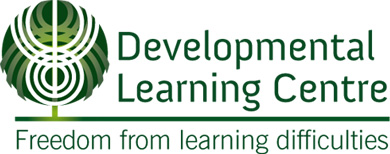As a parent your first steps are to ensure that your child’s most obvious learning equipment is in good order and functioning well. Parents should submit their children to what is effectively a learning “warrant of fitness” before they enter school. Initially this should cover the following:
1. Good Hearing
Get your child’s hearing checked by a qualified audiologist. This will cost approximately $65. Ask for an auditory processing assessment as well if available. If you can’t afford to go privately ask your GP for a referral to the hospital audiologist. Your audiologist will be able to tell you if any follow up is needed. Sometimes hearing is compromised by congestion and fluid accumulation in the middle ear or wax in the outer ear canal.
2. Good Vision
Get your child’s vision checked by a qualified optometrist, preferably one trained in Behavioural Optometry. These optometrists not only check that your child has normal vision, but also test the many different visual skills your child’s eyes need to perform during the learning process. For example, "accommodation" (being able to alter focus from far to near quickly and as needed when copying from the board ), and "tracking" (being able to follow smoothly along the lines of print in a book without the eyes jerking, jumping ahead or backwards, or straying to the line above or the line below).
3. Good Fuel
Good daily nutrition is important for concentration. Make sure your child has:
- A good healthy Breakfast
Avoid sugar laden breakfast cereals. These “hype” up your child’s energy levels (and sometimes behaviour) too quickly, then drop them down just as quickly, playing havoc with their blood sugar levels and consequently their moods, and ability to concentrate. Try oatmeal porridge or a muesli mix that is low in added sugar, with whole milk. If your child tends to be congested or has frequent runny noses try using soya milk for a month to see if this clears up. (Many children have a sensitivity to cows milk.) Scrambled eggs on wholemeal or wholegrain toast are quick to make and contribute high quality protein and carbohydrates for sustained energy levels. - A healthy packed Lunch
Sandwiches should be made with wholemeal or wholegrain bread (low GI carbohydrate for sustained energy, roughage, and vitamin B)and good quality protein (eggs, cheese, lean meats, peanut butter, etc) for muscle development and sustained energy during the day. Add lettuce, tomato etc to sandwiches and include sticks of raw carrot, celery and cucumber for minerals and antioxidants. Fresh or dried fruit for dessert (vitamins, roughage). Avoid refined sugar, muesli bars(filled with sugar), biscuits, chocolate, sweets and chips (filled with artificial flavours, fats and salt). - Plenty of Water
Provide them with water to drink before, during and after school. Avoid all fizzy drinks, fruit drinks, cordials, and juices. Eat whole fruit and drink water instead. - Omega 3 Fatty Acid
Put sufficient Omega 3 Fatty Acid-rich foods in the family diet to nourish their rapidly growing nervous system and brain. (See your pharmacist or Health Food store for supplements if needed. Effalex is a good supplement specifically made for children and has been seen as most helpful for overactive or ADHA children.)
Almost all of our classroom learning is delivered via the two sensory pathways of vision and hearing. Immaturities, dysfunction or malfunctioning in these areas will make learning tasks much more difficult for your child.
In my next article I will discuss the other senses which impact our children’s learning abilities.
